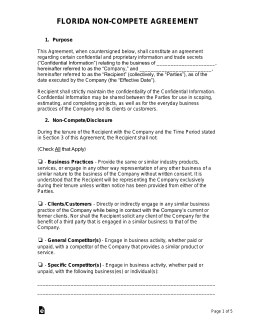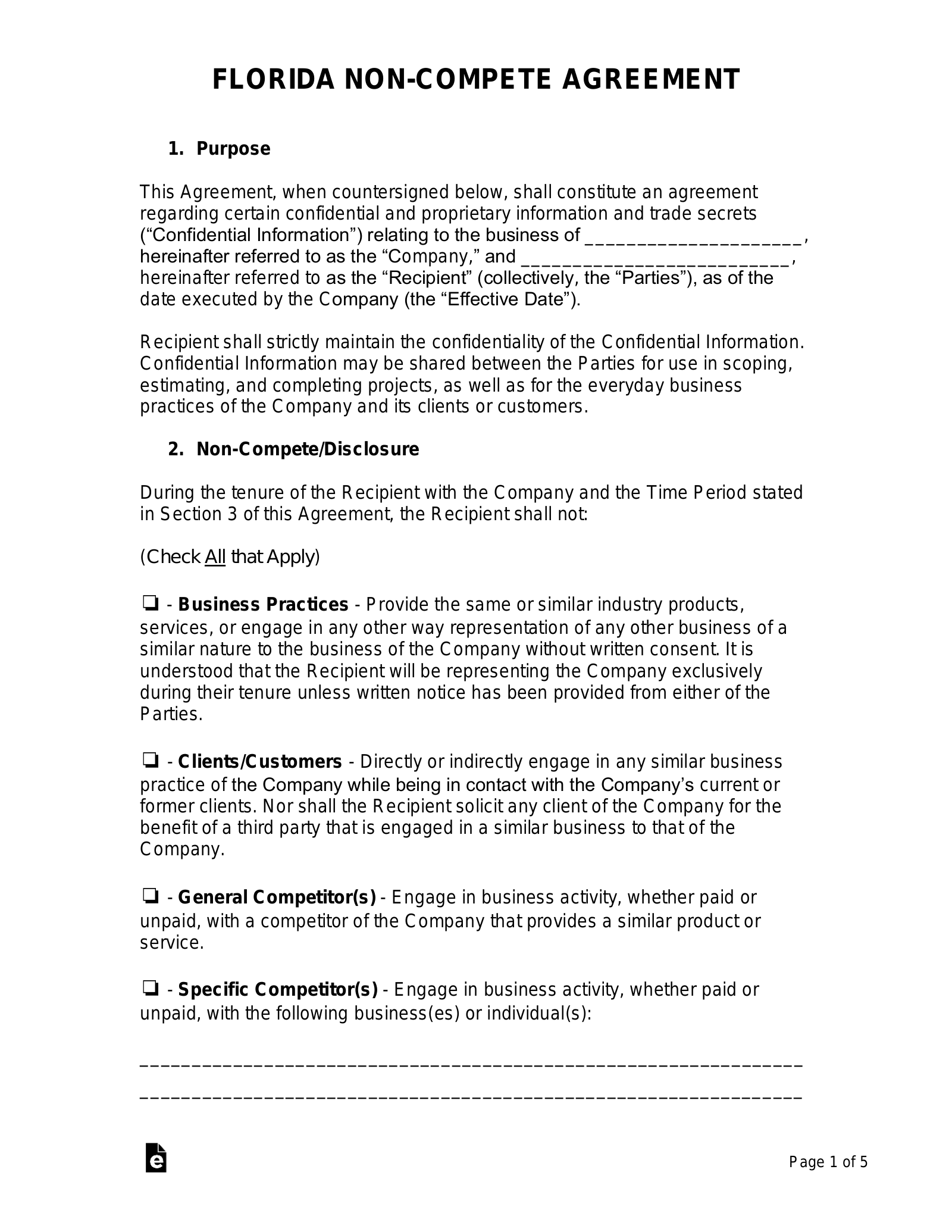Updated February 29, 2024
A Florida non-compete agreement restricts a person from working in a similar business for a specified period of time and geographical area. An employer or a buyer of a business is able to legally enforce a non-compete in accordance with State law. To be enforceable, a non-compete must have a legitimate business interest as the reason for the agreement.[1]
Laws
Legally Enforceable?
Yes, a non-compete is legally enforceable if it is in writing and proves there is a legitimate business interest defined as:[2]
- Trade secrets. Trade secrets, as defined in § 688.002(4).
- Confidential information. Valuable confidential business or professional information that otherwise does not qualify as trade secrets.
- Relationships. Substantial relationships with specific prospective or existing customers, patients, or clients.
- Goodwill. Customer, patient, or client goodwill associated with:
- An ongoing business or professional practice, by way of trade name, trademark, service mark, or “trade dress”;
- A specific geographic location; or
- A specific marketing or trade area.
- Specialized training. Extraordinary or specialized training.
Unfair Advantage
A non-compete may only be written if the recipient would carry an “unfair advantage” by working in a similar or same business. As presented in Passalacqua v. Naviant (2003), it was stated that:
“There must be special facts present over and above ordinary competition.”
Therefore, a non-compete cannot be written to solely exclude a new competitor from entering the market.
Attorneys Prohibited
A licensed attorney is not allowed to participate in a non-compete that restricts their rights to practice law in the State.[3]
Continued Employment
The commitment to continued employment by an employer is determined to be adequate consideration to support a non-compete agreement.[4]
Maximum Terms
- 6 months to 2 years: For employees, independent contractors, and partners or shareholders in a business entity.[5]
- 1 to 3 years: For a former distributor, dealer, franchisee, or licensee of a trademark or service mark (not affiliated with a sale).[6]
- 3 to 7 years: Sale of a business.[7]
Blue Penciling Allowed
Florida allows blue-penciling for a non-compete that “is overbroad, overlong, or otherwise not reasonably necessary to protect the established legitimate business interest… a court shall modify the restraint and grant only the relief reasonably necessary to protect such interest or interests.”
The person being restrained by the non-compete is responsible for proving that the agreement is overbroad.[8]
Getting Out of a Non-Compete
If a person is restricted by a non-compete, Florida law allows for certain hardships to get out of a non-compete.
Recognized Hardships
- Business no longer operates in the jurisdiction that non-compete covers;
- All pertinent legal and equitable defenses; and
- The effect of enforcement upon public health, safety, and welfare.
Unrecognized Hardships
- The economic effect the non-compete has on the individual.[9]


